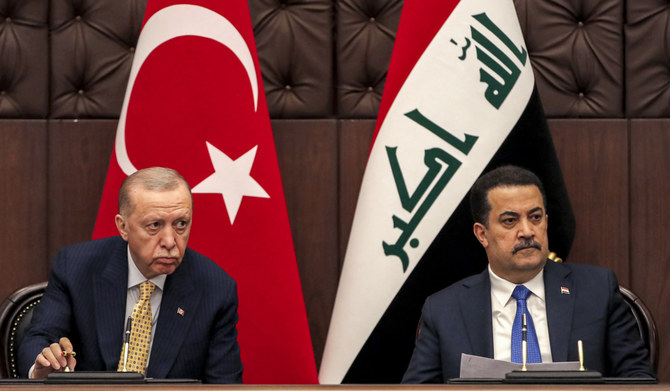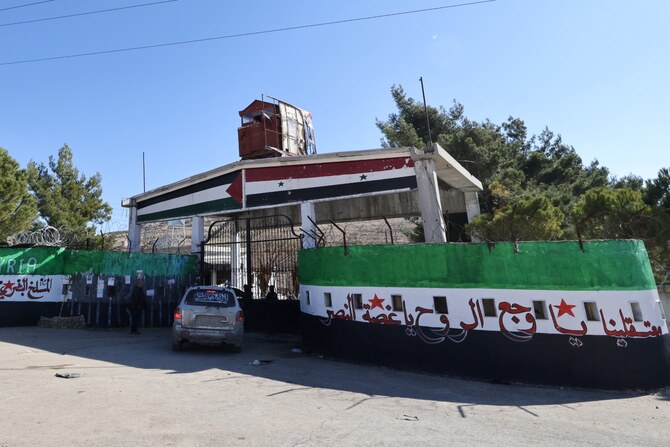IRBIL, Iraq: The Iraqi government announced Tuesday an official ban on a Kurdish separatist group which has been engaged in in a long-running conflict with Turkiye.
Turkiye has been seeking greater cooperation from Baghdad in its fight against the Kurdistan Workers’ Party, or PKK, a Kurdish separatist group that has waged an insurgency against Turkiye since the 1980s and is banned there.
The order issued July 14 and published Tuesday by the Department of Administrative Affairs at the Iraqi Parliament said Prime Minister Mohammed Shia Al-Sudani had issued instructions for the PKK to be described as the “banned Kurdistan Workers’ Party” in all official correspondence. It was the clearest statement from the Iraqi government on the group’s status to date.
Turkish President Recep Tayyip Erdogan visited Iraq in April for the first time in more than a decade. At the time, Erdogan said he and Sudani had “consulted on the joint steps we can take against the PKK terrorist organization and its extensions, which target Turkiye from Iraqi territory.”
Iraq has not followed Turkiye’s lead in designating the PKK a terrorist group but has put it on its list of banned organizations.
The PKK has maintained bases in northern Iraq’s semi-autonomous Kurdish region. In recent months, Turkiye has built up its troops in northern Iraq and has threatened an offensive to clear PKK forces from the border area.
Turkiye often launches strikes against targets in Syria and Iraq that it believes to be affiliated with the PKK. Baghdad has complained that the strikes are a breach of its sovereignty, but earlier this year, the two governments issued a joint statement saying that the “PKK organization represents a security threat to both Turkiye and Iraq.”
The Turkish defense ministry said Tuesday that four suspected PKK militants were killed in an air offensive in northern Iraq, including one who was allegedly on a list of militants most wanted by Turkiye.
The ministry identified the man as Yusuf Kalkan and said he was wanted for membership in a terror organization as well as for founding and directing a terror group.






















